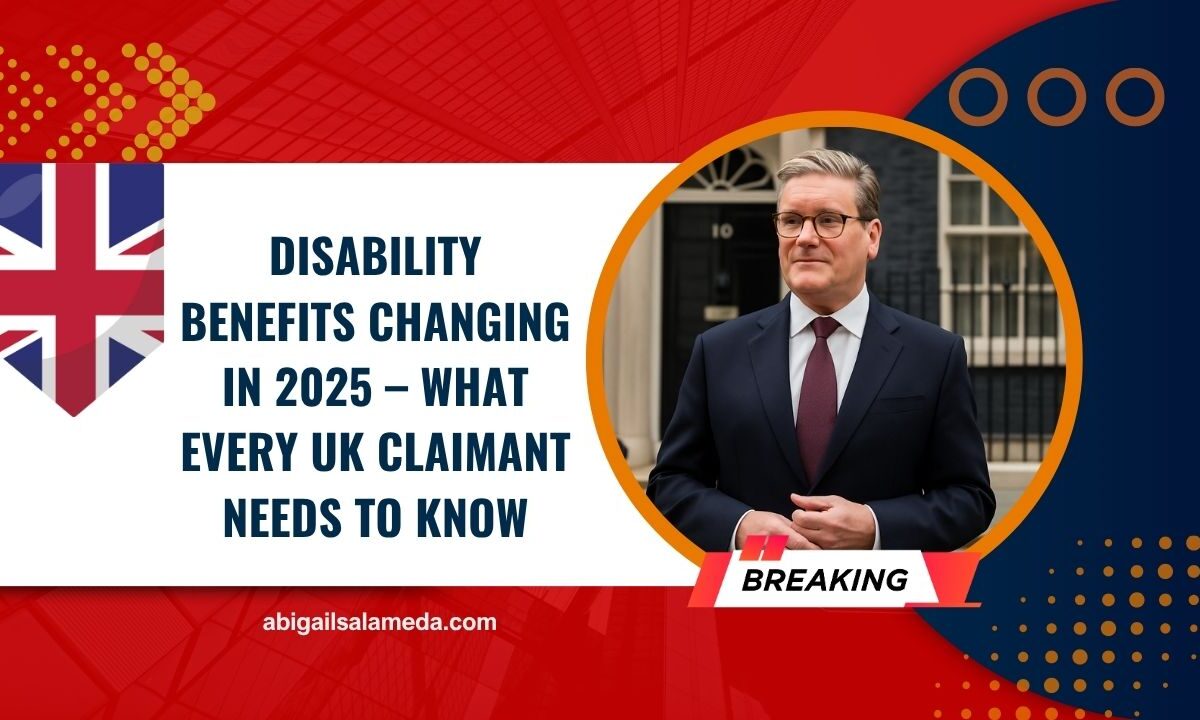In 2025, one of the biggest overhauls in recent years will take place in the UK’s disability compensation system.
The Department for Work & Pensions (DWP) started these reforms with the goals of expediting decision-making, streamlining the application process & tailoring assistance according to medical needs.
These improvements are crucial to comprehend if you presently receive Personal Independence Payment (PIP) or any other disability-related benefit, or if you intend to apply.
Key Updates to Disability Benefits in 2025
The most notable reform is the shift towards a digital-first assessment process. This means less emphasis on in-person evaluations and more reliance on medical records, GP documentation, and condition-specific pathways.
Another game-changing development is the predictive award length model.
This will allow individuals with long-term or permanent conditions to receive extended or even indefinite PIP awards, significantly reducing the stress and uncertainty of frequent reassessments.
Breakdown of 2025 Disability Benefit Changes
Here’s a summary of what has changed so far in 2025:
| Change Area | Description |
|---|---|
| Assessment Process | Less in-person, more digital, tailored per condition |
| Evidence Requirements | Increased use of GP records and digital medical files |
| PIP Renewals | Simpler process for those with stable, long-term conditions |
| Payment Frequency | Some groups will receive payments more frequently starting September 2025 |
| Reassessment Rules | Extended intervals or indefinite awards for lifelong conditions |
| Appeals Process | New mediation step added before tribunal hearings to reduce stress and delays |
These reforms aim to make the disability benefit system fairer, faster, and more accurate for all claimants.
Changes for Personal Independence Payment (PIP) Recipients
If you’re a PIP claimant, the 2025 updates are likely to impact you the most. Under the new rules:
- Long-term conditions may qualify for longer or indefinite awards, removing the need for repetitive reassessments.
- The renewal process is now streamlined for those with no expected health changes.
- A mediation step has been introduced in the appeals process, designed to reduce case backlogs and ease claimant stress before reaching a tribunal.
The DWP is also implementing measures to increase the accuracy and speed of initial decisions by using connected digital health systems. These help assessors access relevant health records quickly and minimize documentation delays.
Digital and Local Support for Claimants
Not everyone can easily access digital services, and the government has acknowledged this. To ensure no one is left behind, local Jobcentres and Citizens Advice centers have been upgraded with accessibility advisors.
These specialists assist individuals who face barriers to navigating the online application system.
Claimants are encouraged to check their Universal Credit and PIP portals regularly for updates.
Alerts and notifications are now being offered to keep users informed about benefit timelines, assessment dates, and decisions.
Why These Changes Matter
These 2025 updates are more than administrative tweaks—they represent a shift toward a personalized and dignity-driven welfare system.
By aligning support more closely with medical realities and reducing administrative burdens, the DWP aims to offer greater stability to those with disabilities. This change is especially vital as many claimants face growing cost-of-living pressures.
The goal of the 2025 Disability Benefits amendments is to update the way the UK assists its disabled citizens.
The reforms offer a chance for a more effective and inclusive system, with longer award periods, fewer reassessments & a more sympathetic appeals process.
To make sure they’re ready for these changes, claimants should keep themselves updated, use internet resources, or ask for help from local experts.
FAQs
What is the main change to disability benefits in 2025?
The biggest change is the shift to a digital-first assessment system and the introduction of longer or indefinite award periods for PIP recipients with stable conditions.
When will the new payment schedules start?
The revised payment frequency for specific groups will begin in September 2025, offering more flexibility and financial planning support.
Will I still need a face-to-face assessment?
In most cases, face-to-face assessments will be reduced, especially if strong medical documentation is provided through digital records.




